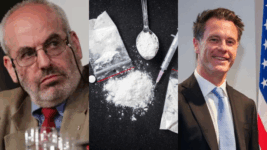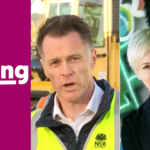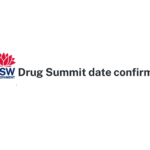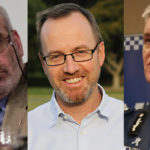NSW Government Resists Broad Calls for Drug Law Reform

The NSW government disregarded last week’s deadline for a response to the recommendations flowing from the 2024 NSW Drug Summit, which it organised, and it also rejected every suggestion made by the NSW inquiry into state cannabis laws.
Yet, the “open secret”, according to veteran NSW drug law reformist Dr Alex Wodak, “is that most of the NSW cabinet support major drug law reform”.
Indeed, certain NSW Labor ministers not only support reforms but were keen campaigners for them during the last term of parliament. So, the understanding is that NSW Labor promised to consider reforms in this area prior to the March 2023 election, but then on having taken power, certain top ministers have gone on to attempt to kill this long-forged drive to reform.
NSW premier Chris Minns had spoken in favour of legalising cannabis in opposition in 2019. Yet, a month into taking office, he told the press that he’d consider cannabis reforms, but he wouldn’t be enacting any, while in August that same year he told the Murdoch press he had “no mandate” to progress drug decriminalisation and he too delayed the holding of a promised drug summit.
Uniting led a coalition of civil society groups calling for a response to the Report on the 2024 NSW Drug Summit last week. The church had to campaign for the meeting to even be held after the premier delayed it. The understanding is that the same forces in NSW cabinet that are undermining the majority will to enact drug law reforms also sought to lessen the impact of the summit.
So, the question for NSW is, whether the premier and other ministers are seeking to thwart the decadeslong campaign for sensible drug reform in this state because they’re afraid that entities like the Murdoch press will react in such a way as to ensure NSW Labor doesn’t take out a second term, or whether the outcomes of drug prohibition simply aren’t in line with these ministers’ proclivities.
Sabotaging sensible reform
“While leader of the NSW Labor Party in opposition, Chris Minns spoke positively about holding a drug summit, decriminalising drugs and regulating cannabis,” wrote Wodak in Pearls and Irritations in December 2024. “But after Labor came to government in March 2023, he seemed to get cold feet and reluctantly agreed to a summit only after a revolt at the NSW Labor conference.”
Wodak is no stranger to getting reforms across the line. He led a civil disobedience campaign in the 1980s, which saw the roll out of needle and syringe exchanges nationwide, and these averted a much larger HIV/AIDS crisis. Still to this day, HIV infections are low amongst people who inject drugs. If the current NSW ministers were in charge then, there would likely be much higher HIV rates today.
The 1999 NSW Drug Summit turned the tide on zero tolerance drug approaches in NSW, and Wodak was key to bringing this about, as he convinced then premier Bob Carr to take a harm reduction approach to drugs. The doctor further notes that last year’s summit was held in a disjointed manner, and Minns had declared decriminalisation “off the table” right before the Sydney leg of the summit.
Further, Wodak set out that the international political outlook on drugs today is much more reformist focused than in 1999. This would suggest that if NSW ministers were to muster the courage to progress reforms, they would be met with a much more receptive constituency. The 2024 summit recommendations are changes that have been on the reformist agenda since early this century.
“Meanwhile funding for drug treatment and social support for people struggling with alcohol and drug problems languishes,” wrote Dr Wodak in the wake of the final two days of the summit that were held in Sydney in December, following two dates held in Griffith and Lismore, respectively, last November. “The central problem is and always has been a lack of political will.”
Maintaining a harmful regime
Drug offences in NSW carry lesser penalties when the drug involved is cannabis than when other illicit substances considered “hard drugs”, such as heroin or cocaine, are involved. This is in acknowledgement of the lesser harms associated with the plant. And in line with this, Minns argued in opposition in 2019 that decriminalisation was not enough, and cannabis should be legal.
Delivered in June this year, the Impact of the Regulatory Framework for Cannabis in NSW Inquiry report recommended that the government decriminalise the personal use and possession of cannabis, prior to then shifting to a staged process to establish a legalised and regulated market. The Minns government responded that it has “no intention to decriminalise or legalise cannabis”.
“The NSW government has missed this opportunity, but the groundswell of community support for commonsense reform is only rising,” outlined Pennington Institute research director Dr Jake Dizard in a statement. “NSW still has an opportunity to show leadership, reduce harms from our outdated cannabis policies, and bring cannabis laws into line with evolving community expectations.”
“More Australians support a carefully regulated market for adult-use cannabis than oppose it,” the doctor said in light of the government’s negative response to the inquiry report. “Public support for legislative change is overwhelming: eight in ten Australians support the removal of all criminal penalties for the possession and use of cannabis, and a growing majority back legalisation.”
Dizard points out that the current cannabis prohibition approach is failing. He notes that 40 percent of the nation has tried it at some stage, while more than one in ten people use cannabis annually. The Pennington researcher further made clear that criminalising people over cannabis does nothing to improve community safety, however it does cause harm and waste resources.
A convenient excuse
As Wodak noted, the lack of political will to progress drug law reform is the key reason it continues to stall. The drug law reform agenda that NSW Labor had been promising before taking office was promptly shelved following the March 2023 election, which would indicate that particular ministers brought the reformist rhetoric to an end, as they thought it politically expedient to do so.
An August 2023 Daily Telegraph report had Minns responding to questions about the ACT shifting to a policy of drug decriminalisation at the end of October that year. The relatively newly minted premier then told the Murdoch press, which was at the same time running sensational stories about the ACT policy shift, that he had “no mandate” for decriminalisation and too delayed the summit.
Another factor at play in resisting decriminalisation appears to be the ability that prohibition now provides police in terms of surveilling the public. Jurisdictions nationwide are currently legislating to allow police officers to wand the public in ever-widening settings, whilst the discrimination of drugs would remove a key reason that NSW police officers have to approach civilians out in public.
NSW police officers have been employing the use of drug detection dogs in public since the turn of the century, and over the last decade, these have been accompanied by strip searches at ever-increasing rates. Only around a quarter of these searches turn up any drugs and then it is hardly ever anything but a small amount of cannabis located. So, drug dealers are certainly not the main target.
The NSW police drug dog and strip search initiatives have been the subject of intense civil society campaigns to reject them, and yet state authorities continue to resist any pull back on these mechanisms that are supposed to be preventing the scourge of drug harms in the community, but are really giving police officers the ability to get up in the face of civilians minding their own business.







